One rule for Russia, another for Israel?
Is cycling applying double standards when it comes to war crimes and sporting exclusion, asks Chris Marshall-Bell
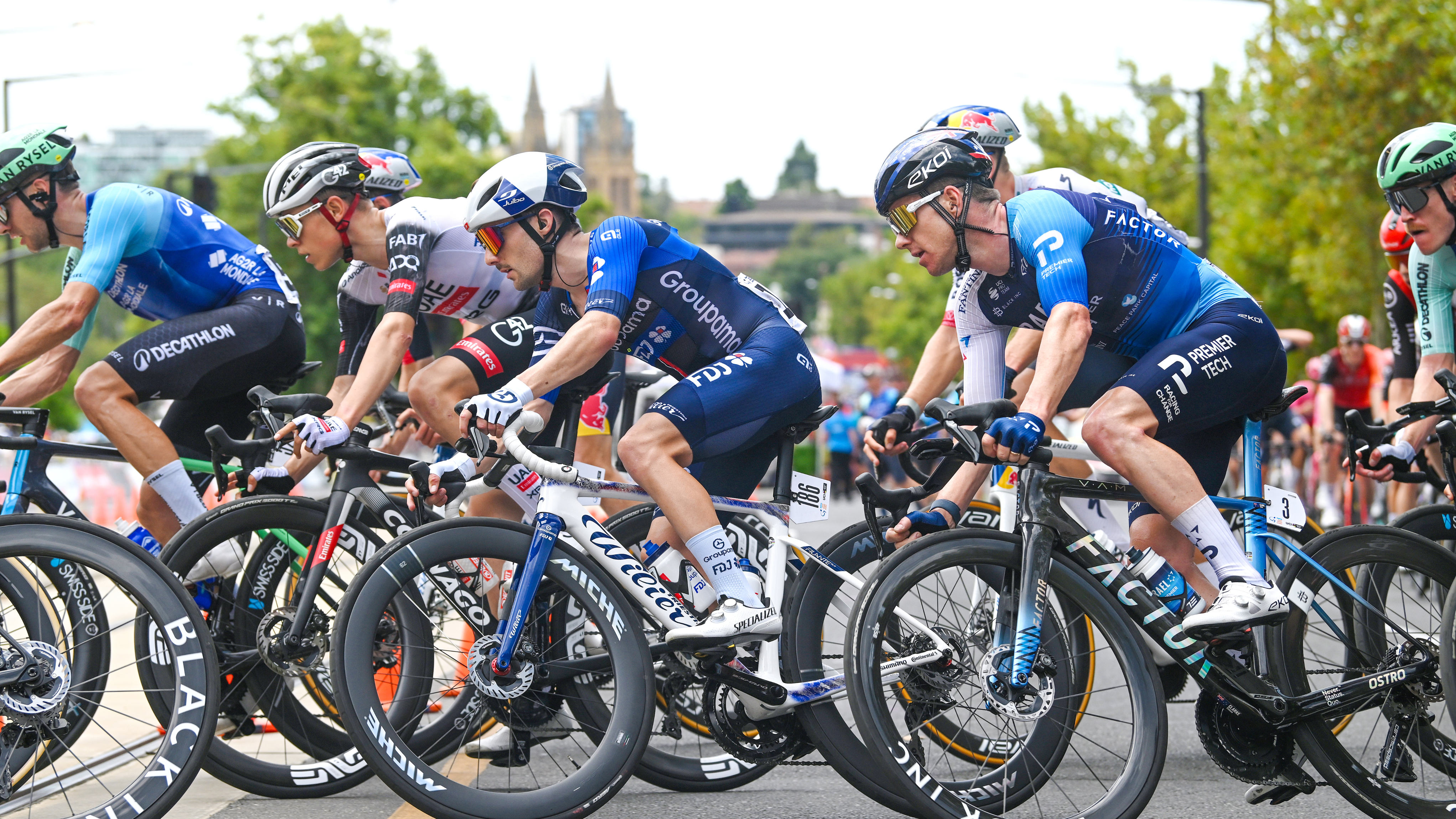

Just days after Russian troops rolled into Ukraine in 2022, the UCI swiftly removed UCI licences from all Russian and Belarusian teams. These teams and their sponsors were banned from UCI events to avoid “damaging the image of the UCI and cycling in general”. Russian and Belarusian riders were allowed to continue competing only if they joined non-Russian, non-Belarusian teams. By 2023, they were permitted to ride at the World Championships under neutral status – provided they could demonstrate they did not support the war. Some riders lost their UCI licences after failing to meet those conditions. But is the UCI’s strong stance being applied evenly across the board?
As drone footage on TV news surveys the ruins of Gaza, a thorny question is raised: why is Israel being treated differently? Israel’s military action in Gaza, in response to the 7 October 2023 Hamas attack that killed about 1,200 people, has claimed the lives of at least 47,000 Palestinians, according to the Hamas-run health ministry. Research published by the Lancet estimates a death toll 40% higher, at over 64,000, with 59% being women, children and over-65s. South Africa, Amnesty International and some UN experts have accused Israel of genocide, and yet – while Russian teams remain banned – Israel-Premier Tech continues to race unimpeded.
Cycling’s world governing body the UCI has consistently taken the same line as the International Olympic Committee (IOC): that it is not within their remit to intervene in politics. Hence, Israeli athletes and teams have been allowed to continue competing unrestricted. The UCI did not respond to a request for a statement, but one UCI management committee member, who requested not to be named, told CW: “Our position is very clear: we look to sports, not politics. Right now Israel is part of Europe in terms of sport, and Israel is not a suspended international federation. We will therefore accept riders from Israel without any problem and we will never take a position against athletes from these countries [engaged in war]. We will always protect athletes.”
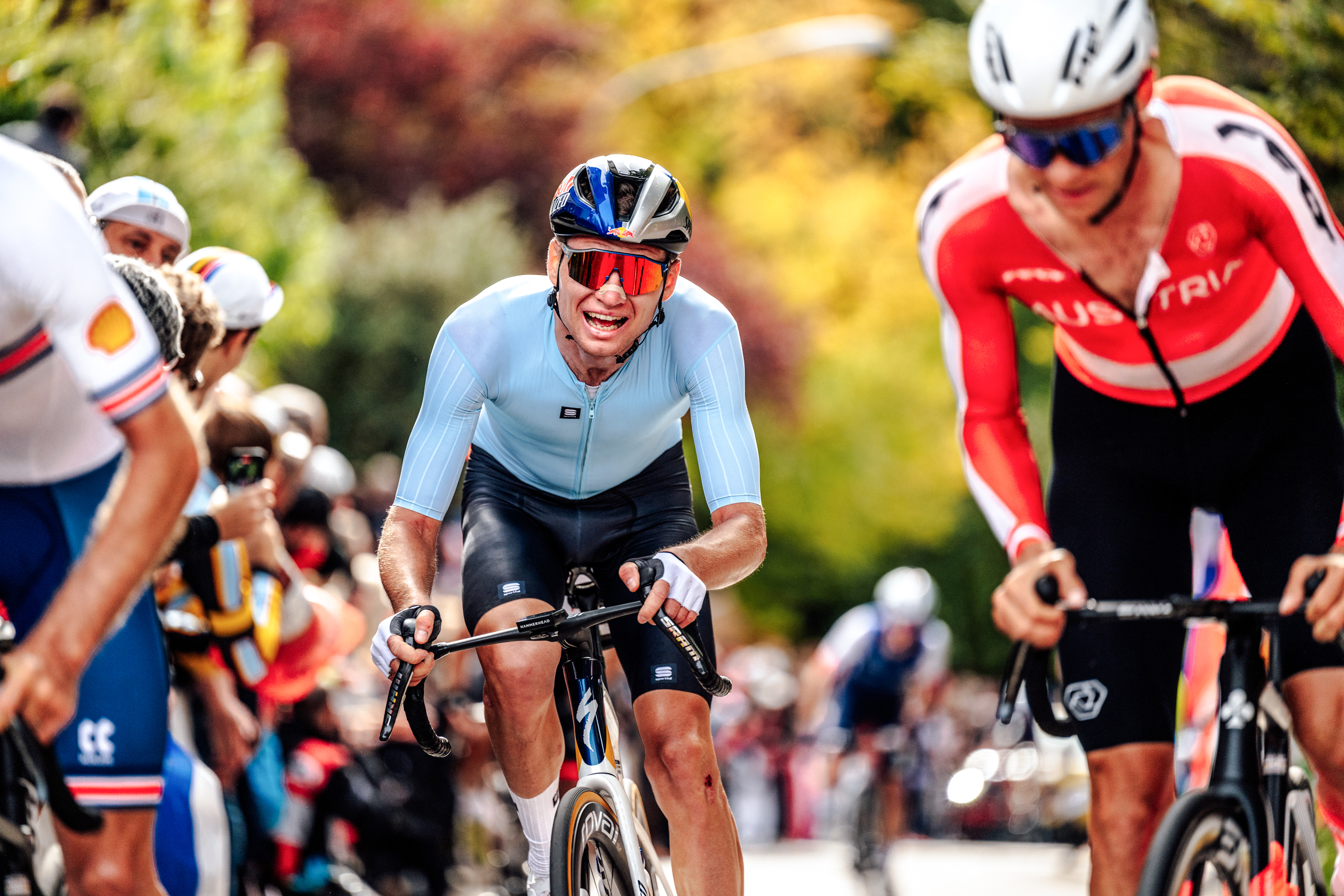
Russian Aleksandr Vlasov in neutral kit at the 2024 Worlds
However, the IOC and UCI’s claims of political neutrality do not bear much scrutiny. In 1964, the IOC banned South Africa from the Olympics for its refusal to condemn apartheid, a ban that remained in place until 1992. What’s more, the two global governing bodies did not hesitate when it came to taking action to ban Russia and Belarus. Should war persist in the Middle East – as well as ongoing illegal military action and settlement building in the occupied West Bank – could, and indeed should, Israeli teams be similarly excluded?
Privately funded
Israel-Premier Tech is unequivocally an Israel-registered team, but is not state-owned, nor does it receive funding from the Israeli government. The team still receives some support from Start-up Nation, a non-profit organisation, but its main source of funding is the Canadian-Israeli businessman Sylvan Adams, who invested in the team a decade ago after it was launched by AmericanIsraeli billionaire Ron Baron. Adams, who splits his time between Tel Aviv and North America and describes himself as a “self-appointed envoy for Israel”, previously worked with the Israeli government in bringing the opening stages of the 2018 Giro d’Italia to Israel.
Adams declined to speak to CW for this article, but in an interview with VeloNews in 2021 he said of his team and its riders: “These guys ride for Israel, so they need to know the country. This is not a state project. I am, by far, the largest single contributor from the team, and we do receive a small amount from the tourism board. There is no other government funding. The home country is unambiguously Israel. We don’t have a commercial sponsor – this is our identity.” A team spokesperson told CW: “Israel-Premier Tech has no existing partnership with the Israeli Ministry of Tourism, nor any Israeli government body, and does not receive any financial support.”
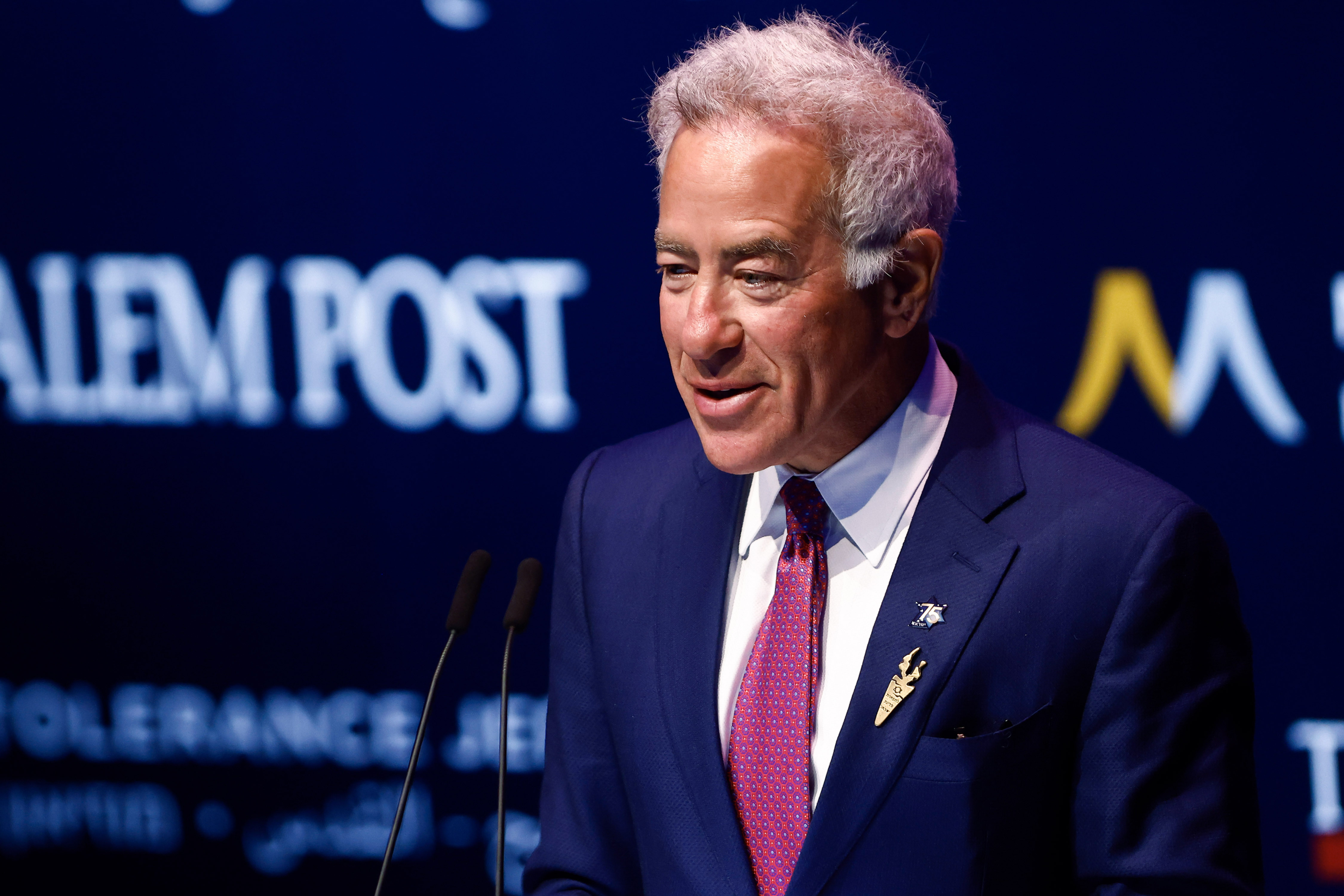
Sylvan Adams is Israel Premier Tech’s billionaire backer
Well connected politically, Adams has had occasional public interactions with Benjamin Netanyahu, the Israeli prime minister, who is the subject of an International Criminal Court (ICC) arrest warrant for alleged crimes against humanity and war crimes. Adams appears to be on friendly terms with the US premier too, as he attended President Trump’s inauguration in January, where he hinted to Israeli media that he could play an intermediary role in the US’s response to the ongoing war. Adams described Trump’s election as “a blessing”, adding “this will be the most Israel-friendly cabinet in history.”
Get The Leadout Newsletter
The latest race content, interviews, features, reviews and expert buying guides, direct to your inbox!
There is no questioning Adams’s commitment to his team, which has won over 150 professional races, including six Grand Tour stages. Currently, they have three Israeli riders, down from four in 2024, and five British riders, including four-time Tour de France winner Chris Froome, who appeared in a video last January on the state of Israel’s official social media channels calling for the hostages in Gaza to be released. Since 2018 ‘Israel’ has appeared prominently on the team’s jersey. In 2024, however, all team vehicles dropped ‘Israel’ from their livery, which the team stated was a “precautionary measure”, given heightened tensions. Riders were also given blank training kits due to fears around their safety.
Meanwhile, Russian UCI ProTeam Gazprom-RusVelo has been forced to suspend its activities after the UCI revoked its racing licence in March 2022. The team, which is backed by the Russian state energy giant Gazprom, was left in limbo following the ban, with riders scrambling to find new teams at short notice, and some have seen their careers stall indefinitely.
Double standards?
Inevitably, the UCI faces accusations of double standards in its treatment of Russia/Belarus versus its treatment of Israel. This is not, of course, to draw an equivalence between the two conflicts – they are different in nature and geopolitical implications – but both have inflicted immense civilian suffering. An estimated 12,000 Ukrainian civilians have died as a result of President Putin’s war – less than a quarter of the death toll in Gaza. It can be reasonably argued that neither Israel or Hamas adhere to the Olympic Charter that states: “Olympism seeks to create a way of life based on... respect for internationally recognised human rights... with a view to promoting a peaceful society concerned with the preservation of human dignity.”
“THE CIVILIAN DEATH TOLL IS FAR HIGHER IN GAZA”
The counter-argument that banning Russian but not Israeli teams and athletes is not a double standard centres on the long history of the Israel-Palestine conflict and the differences between Israel’s military objectives and those of Russia. Whereas Russia’s invasion of Ukraine is regarded by most of the international community as threatening global peace, the war in the Middle East is viewed as a long-running regional conflict. The latter is grounded in ethno-nationalist territorial disputes deemed to be posing less of a threat to the wider world. It’s through that prism that sports governing bodies are insisting that there is no reason to prevent Israeli participation.
Cycling remains silent
Though the war in Gaza has generated fervent public debate, the cycling world has mostly held its tongue. Aside from a few small fan protests at races in the UK, Australia, Spain and France, there has been little pushback against Israel's continued participation.
The difficulties facing Palestinian cyclists are stark. The Palestinian Cycling Federation gained full membership of the UCI in 2020, and one of its coaches, Sohaib Zahda, told the RadioCycling podcast in November 2023: “If you want to compare between Israeli and Palestinian cyclists, it’s a big diff erence. Israelis have all the freedom of movement, they can go everywhere. For them, it’s easy to get [equipment] but for us it’s difficult to buy road bikes… It’s forbidden for the Palestinians to import bikes.”
Despite the resumption of Israeli bombing, shredding the ceasefire, the UCI and IOC are unlikely to alter their stance on the country – though a potential International Court of Justice ruling could force a reassessment. For now, there is no sign that Israeli cyclists or Israel-Premier Tech will face exclusion, nor has any clear threshold been set that would trigger such action. For fans critical of Israel’s military campaign, their position on Israeli teams’ and riders’ freedom to compete must remain one of individual conscience.
SHOULD ISRAEL BE BANNED LIKE RUSSIA?
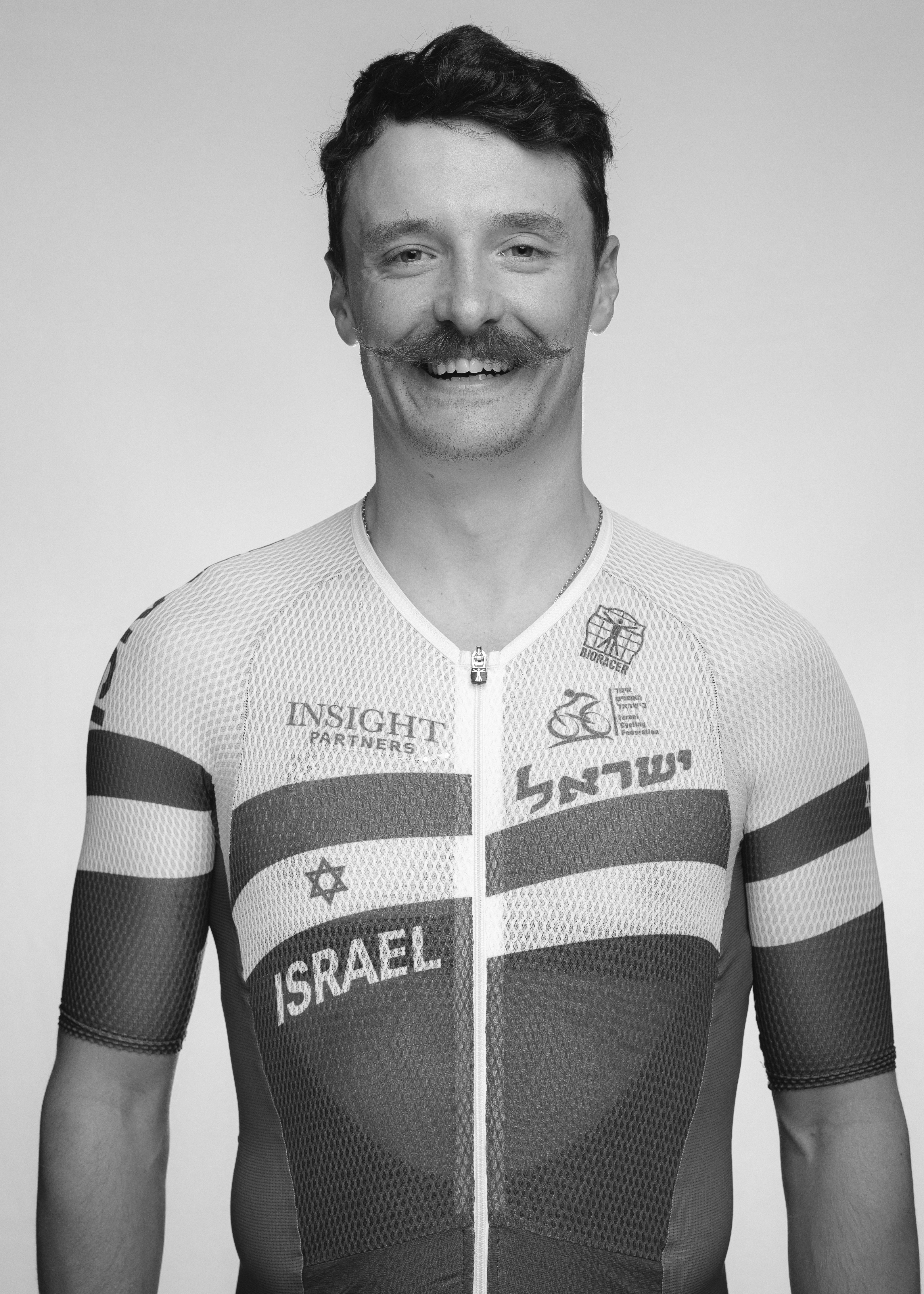
No: Vlad Loginov, Ukrainian turned Israeli cyclist and former Israeli national champion
“Every trip for us [Israeli riders, since 7 October 2023] has been emotionally super hard: you need to be attentive to everything around you. We can’t wear Israeli teamwear because of security regulations and personal safety, but other countries proudly can. And at home in Israel, we’re occasionally waking up at midnight to run to the bomb shelter, which aff ects training. My team-mates and I are not guilty of the situation around us. People ask why Israel is not banned from sport like Russia and Belarus, but it’s not the same. Ukraine is defending its country: it came under attack on 24 February [2022]. Israel came under attack on 7 October and is doing the same – defending its country.”
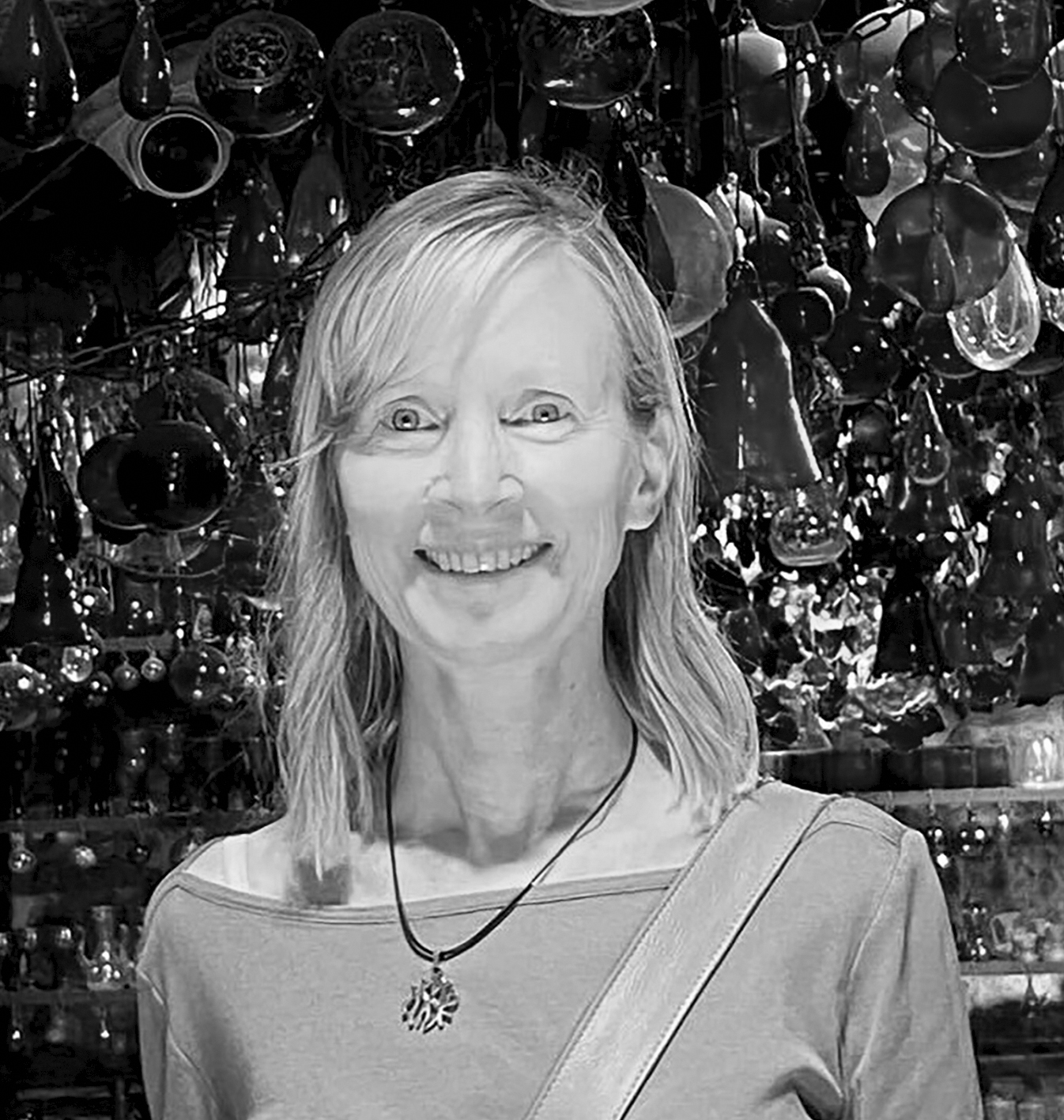
Yes: Stephanie Adam, Palestinian Campaign for the Academic and Cultural Boycott of Israel (PACBI)
“Israel-Premier Tech isn’t so much a cycling team as a sportwashing team. [Israel-Premier Tech owner Sylvan] Adams openly states that the team was created to show the world what he refers to as ‘normal Israel’. No team whose owner says it represents a state accused of committing genocide… should be allowed to participate in international cycling. Allowing this goes against all sporting values. [The] UCI’s failure to take any measures against the Israeli team… can only be described as hypocrisy. International bodies, including sporting bodies, are failing in their moral obligations by continuing to shield Israel from accountability.”

Thank you for reading 20 articles this month* Join now for unlimited access
Enjoy your first month for just £1 / $1 / €1
*Read 5 free articles per month without a subscription

Join now for unlimited access
Try first month for just £1 / $1 / €1
A freelance sports journalist and podcaster, you'll mostly find Chris's byline attached to news scoops, profile interviews and long reads across a variety of different publications. He has been writing regularly for Cycling Weekly since 2013. In 2024 he released a seven-part podcast documentary, Ghost in the Machine, about motor doping in cycling.
Previously a ski, hiking and cycling guide in the Canadian Rockies and Spanish Pyrenees, he almost certainly holds the record for the most number of interviews conducted from snowy mountains. He lives in Valencia, Spain.
-
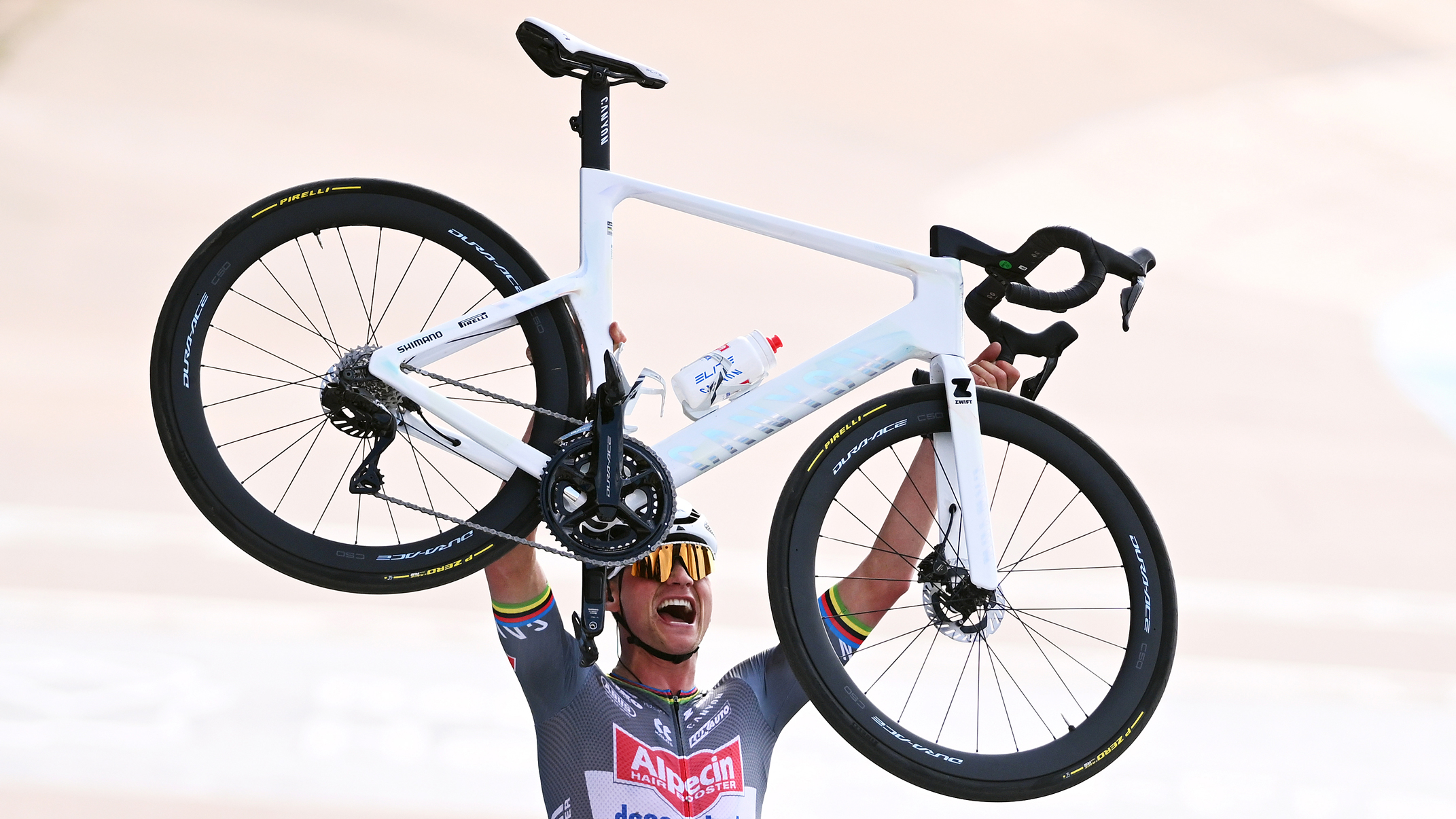 Save £42 on the same tyres that Mathieu Van de Poel won Paris-Roubaix on, this Easter weekend
Save £42 on the same tyres that Mathieu Van de Poel won Paris-Roubaix on, this Easter weekendDeals Its rare that Pirelli P-Zero Race TLR RS can be found on sale, and certainly not with a whopping 25% discount, grab a pair this weekend before they go...
By Matt Ischt-Barnard
-
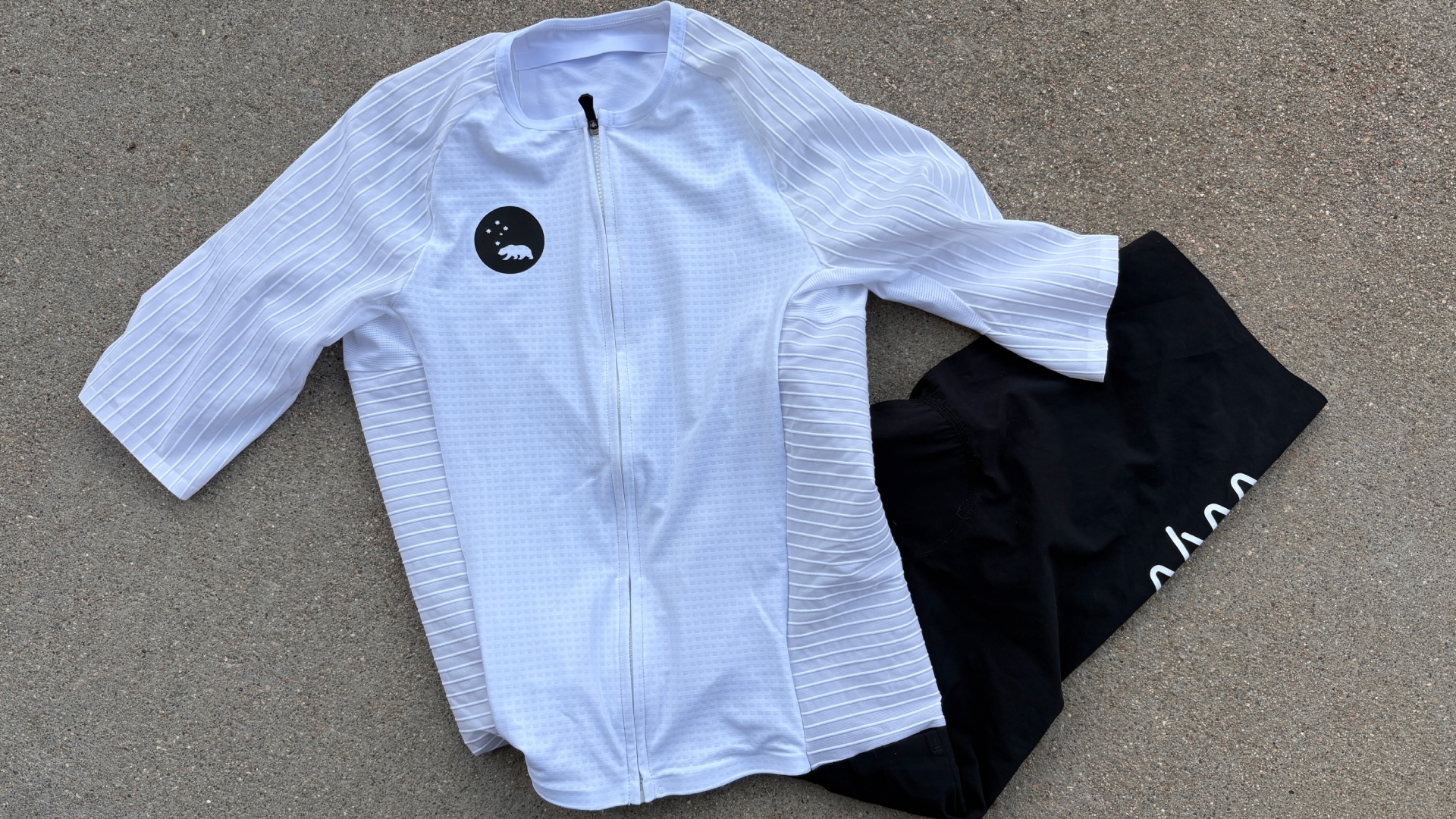 "Like a second skin” - the WYN Republic CdA triathlon suit reviewed
"Like a second skin” - the WYN Republic CdA triathlon suit reviewed$700 is a substantial investment in a Tri Suit, and it is, but you’ll definitely feel fast in it
By Kristin Jenny